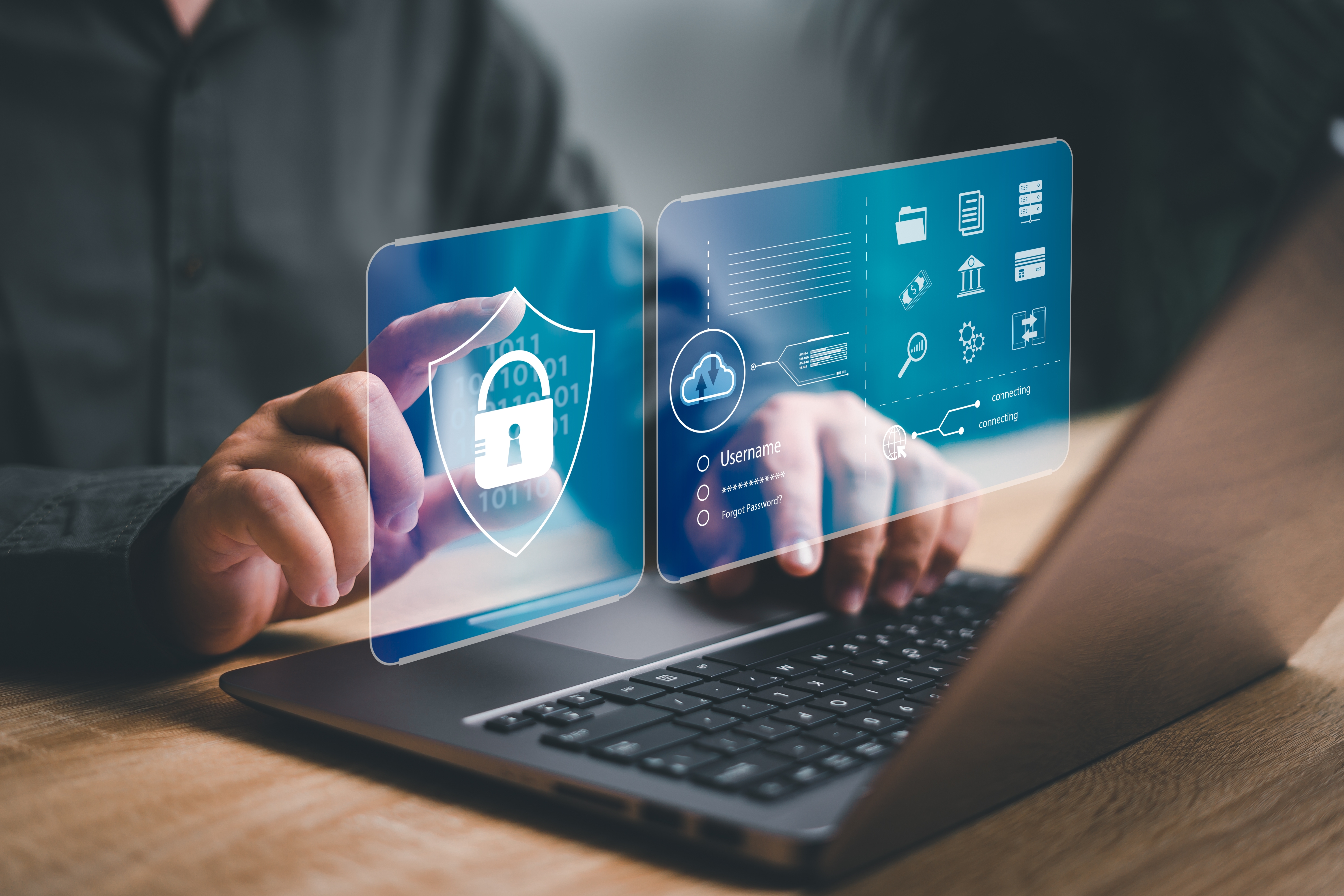The Role of Encryption in Data Protection
Cyber Security | September 27, 2023

In our increasingly digital world, safeguarding sensitive data has become paramount for businesses and individuals. As cyber threats continue to evolve, so too must our protective measures. This is where encryption, a cornerstone of modern data protection strategies, comes in. At Next Hop Solutions, our IT experts want to shed light on the role of encryption in data protection to help you fully understand just how vital it is.
What is Encryption?
At its core, encryption is the process of converting readable data (plaintext) into code (ciphertext) to prevent unauthorized access. Only those with a specific key can decrypt the encoded data, ensuring its confidentiality.
Encryption in Data Backup
When it comes to data backup, encryption provides an added layer of security. Before data is stored in backup repositories, it is encrypted, ensuring that, even if backup files are accessed, they remain unreadable without the decryption key.
Safeguarding Data Transfers
Whether it is sending emails, sharing documents, or performing financial transactions, data is constantly on the move. Encrypting this data during transmission ensures it cannot be intercepted and misused; thus, preserving its integrity and confidentiality.
Encryption’s Role in Cloud Computing
With more businesses migrating to the cloud, concerns about data security in these virtual environments have risen. Cloud service providers utilize encryption to protect data at rest and in transit, ensuring that, even in a multi-tenant environment, a client’s data remains private and secure.
Learn all about some of the best practices for cloud security.
Strengthening Cybersecurity Measures
Encryption does not just stop at data; it extends to endpoints, too. Encrypting devices, such as computers, smartphones, or tablets, ensures that, in cases of theft or loss, the data contained within remains inaccessible.
Regulatory Compliance
For many businesses, especially those in finance, healthcare, or e-commerce, encryption is not just a best practice; it is a regulatory requirement. Complying with data protection standards like GDPR or HIPAA often necessitates robust encryption protocols.
In a landscape where data breaches can lead to significant financial and reputational damages, encryption emerges as a non-negotiable component of a holistic data protection strategy. By encoding information, we not only shield it from prying eyes but also fortify our digital infrastructures against evolving cyber threats.
Fraser Valley businesses looking to bolster their IT security can lean on the expertise of Next Hop Solutions, ensuring that their digital assets remain uncompromised and their operations uninterrupted. Give us a call at 1-855-482-5141 or request a consultation online.

In our increasingly digital world, safeguarding sensitive data has become paramount for businesses and individuals. As cyber threats continue to evolve, so too must our protective measures. This is where encryption, a cornerstone of modern data protection strategies, comes in. At Next Hop Solutions, our IT experts want to shed light on the role of encryption in data protection to help you fully understand just how vital it is.
What is Encryption?
At its core, encryption is the process of converting readable data (plaintext) into code (ciphertext) to prevent unauthorized access. Only those with a specific key can decrypt the encoded data, ensuring its confidentiality.
Encryption in Data Backup
When it comes to data backup, encryption provides an added layer of security. Before data is stored in backup repositories, it is encrypted, ensuring that, even if backup files are accessed, they remain unreadable without the decryption key.
Safeguarding Data Transfers
Whether it is sending emails, sharing documents, or performing financial transactions, data is constantly on the move. Encrypting this data during transmission ensures it cannot be intercepted and misused; thus, preserving its integrity and confidentiality.
Encryption’s Role in Cloud Computing
With more businesses migrating to the cloud, concerns about data security in these virtual environments have risen. Cloud service providers utilize encryption to protect data at rest and in transit, ensuring that, even in a multi-tenant environment, a client’s data remains private and secure.
Learn all about some of the best practices for cloud security.
Strengthening Cybersecurity Measures
Encryption does not just stop at data; it extends to endpoints, too. Encrypting devices, such as computers, smartphones, or tablets, ensures that, in cases of theft or loss, the data contained within remains inaccessible.
Regulatory Compliance
For many businesses, especially those in finance, healthcare, or e-commerce, encryption is not just a best practice; it is a regulatory requirement. Complying with data protection standards like GDPR or HIPAA often necessitates robust encryption protocols.
In a landscape where data breaches can lead to significant financial and reputational damages, encryption emerges as a non-negotiable component of a holistic data protection strategy. By encoding information, we not only shield it from prying eyes but also fortify our digital infrastructures against evolving cyber threats.
Fraser Valley businesses looking to bolster their IT security can lean on the expertise of Next Hop Solutions, ensuring that their digital assets remain uncompromised and their operations uninterrupted. Give us a call at 1-855-482-5141 or request a consultation online.





